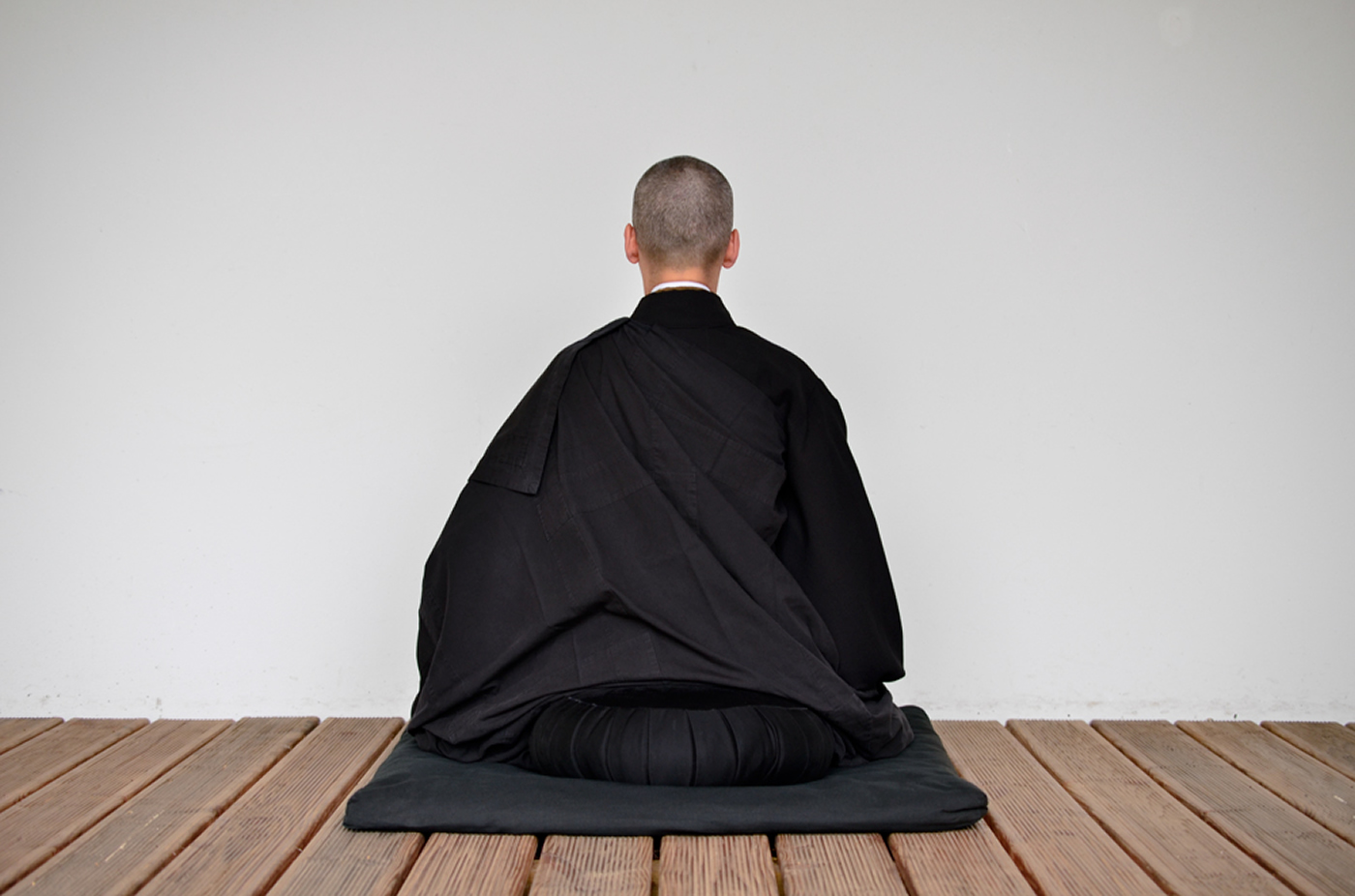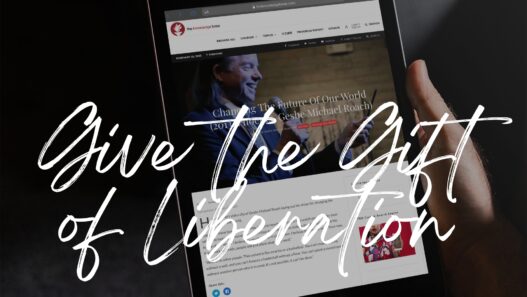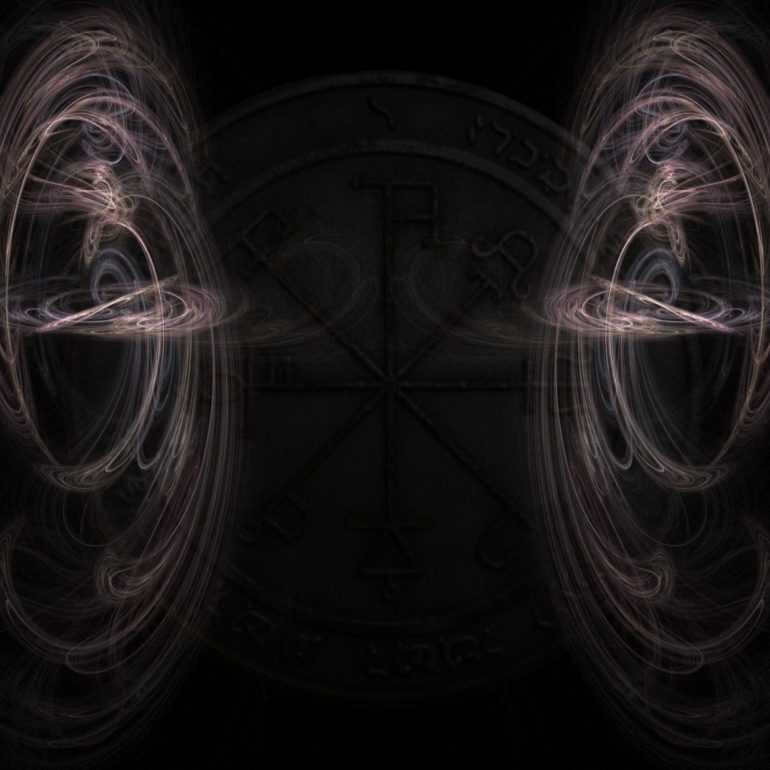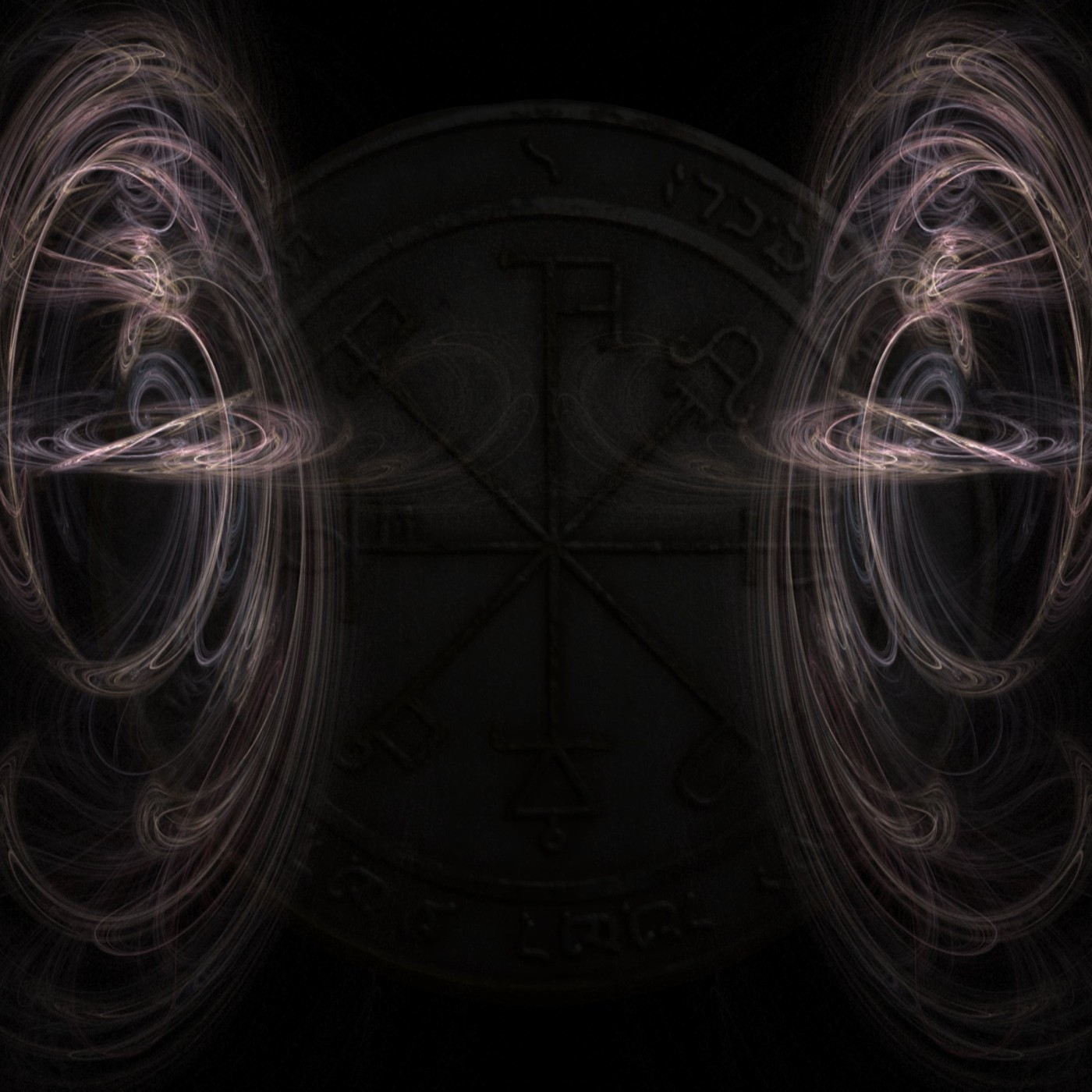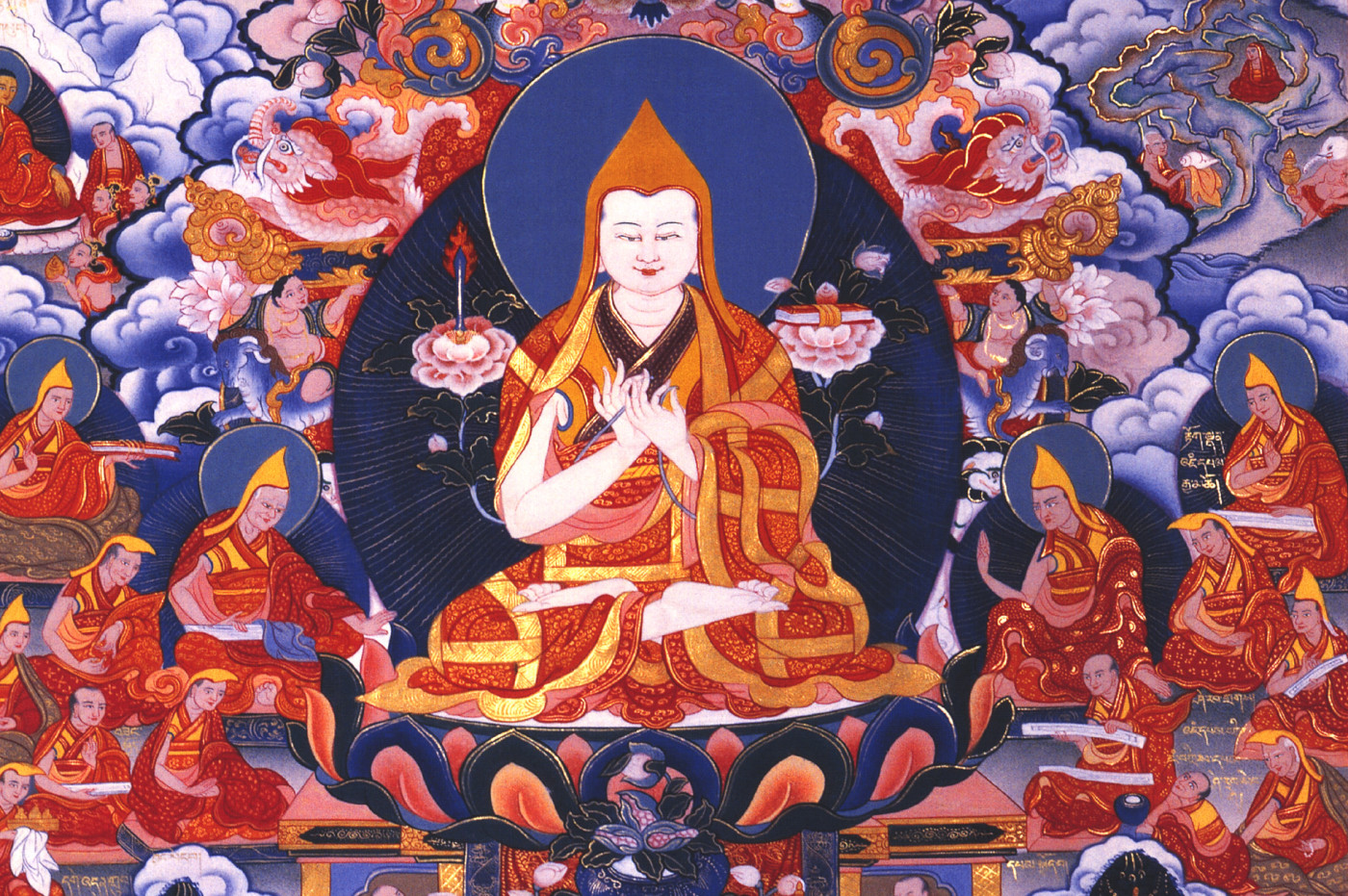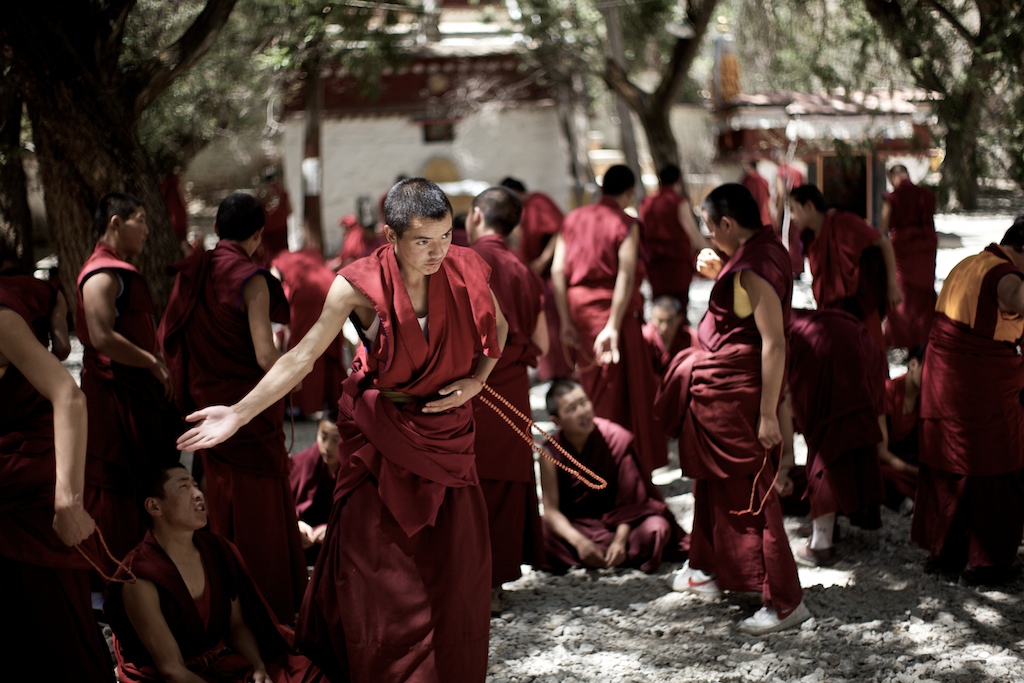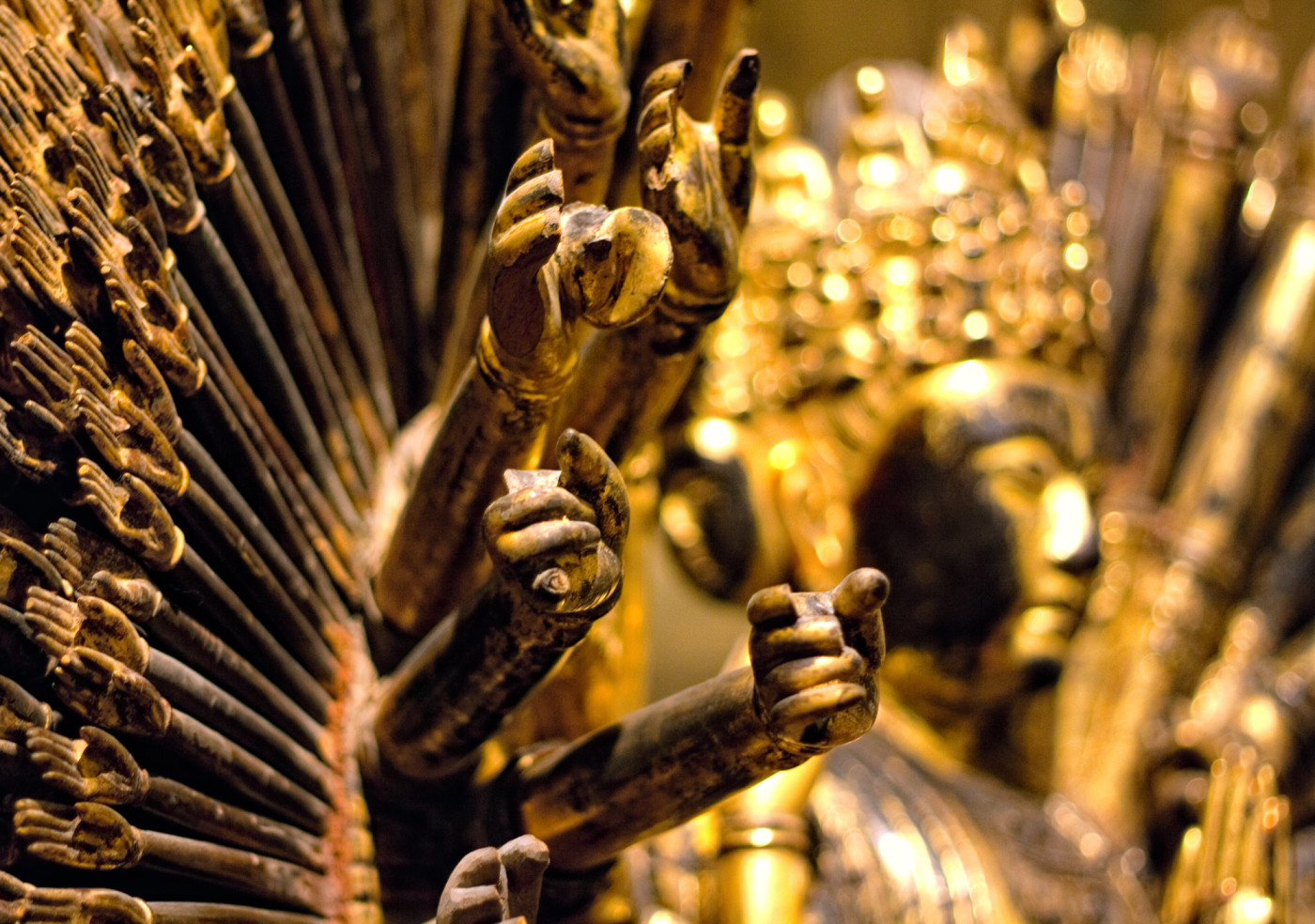Audio
A one-night lecture by Geshe Michael Roach in Brisbane, Australia on September 9, 1998 in which Geshela discusses the difference between two very important words in Buddhism: Nirvana and Samsara. These two words reflect the goals of all Buddhist practice—Nirvana is where you’re trying to go and Samsara is what you’re trying to get away from. However, before you have a long lecture about how to get to Nirvana and escape from Samsara, it’s important to clarify what they are. This lecture does exactly that.
We find this one really helpful because the format also included a lot more interaction with the audience than usual, giving people a chance to share their ideas about what they think the qualities of Nirvana and Samsara are. This really flushed out many of the misunderstandings which new Buddhists in particular may have about the goals of Buddhist practice and clarified the path to reach those goals.
Options for Further Study
To deepen your study on many of the topics introduced in this lecture, please refer to the following courses on The Knowledge Base:
What is Nirvana and How Do We Get There? (2011, Bahamas)

The word “nirvana” brings up many different ideas. Is it some kind of space into which we disappear? Is it some strange place where we are happy all the time, without a care for the problems of the rest of the world? In this series of talks, we will explore what nirvana really is, and practical ways of getting there, learning both the theory of nirvana, through the study of the Perfection of Wisdom Sutras and practical meditation practices. We will see that nirvana is actually a very engaged state of being, where we are in total happiness but serving the world at the same time.
Nirvana Immersion (2012, New York and Bahamas)

A very special immersion into the secrets of Nirvana, with text and commentary by Geshe Michael Roach. Are subtle, mental habits standing between you and pure freedom? In the Tibetan tradition, nirvana is defined as overcoming negative emotions within ourselves, primarily by addressing their root cause of misunderstanding reality. For example, the belief that criticism we receive from a spouse is coming from him or her, and not from how critical we were to someone else last week.
Nirvana is a kind of peace free of this cycle of misunderstanding, and is a stepping stone to full enlightenment. This immersion is designed to help all of us on a spiritual path, in an immediate practical way, get to the root of our own worst qualities, and see directly how a pattern of ignorance within our mind is perpetuating our experience of pain, and how to end that experience for good.
Me As Buddha: What Will I Be Like? (2012, New York)

“Nirvana” means “blowing out” our negative emotions, forever. Reaching a truly pure and peaceful mind. But life doesn’t end with nirvana! After that, we have to continue on all the way to becoming a fully Enlightened Being. A lot of times though our mind gets stuck here. What exactly will I be like, when I turn into a Buddha? Can I still relate to friends and family? Will my favorite pair of jeans still fit?
During this special teaching by Geshe Michael Roach we’ll find out exactly what we’ll be like when we get to this highest goal. We’ll hear about the Four Forms and the Five Wisdoms of a Buddha—the body and mind that we will have when we get there—and just how, in practical terms, this will change our life on this planet. And we’ll also answer the jeans question.
- Idims – La Sabiduría De Nagarjuna Curso 6 (2024, Arizona) - April 24, 2025
- Idims – Die Weisheit Von Nagarjuna Kurs 6 (2024, Arizona) - April 23, 2025
- Idims – Trí Tuệ Của Ngài Nagarjuna Khóa 6 (2024, Arizona) - April 23, 2025




